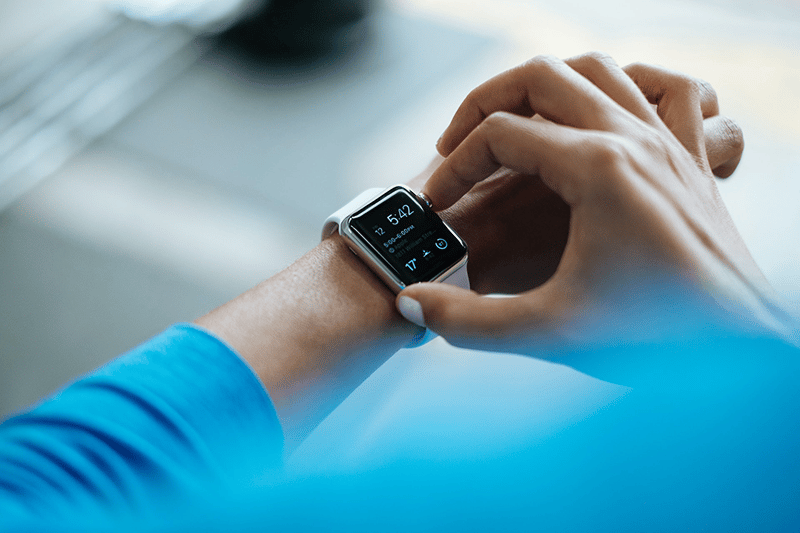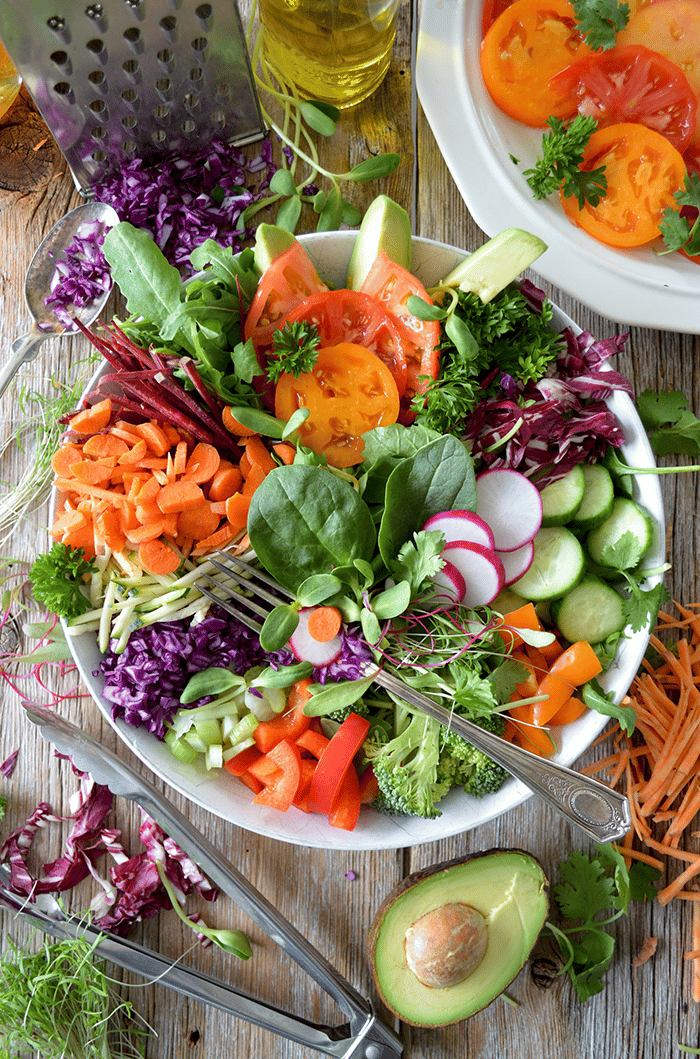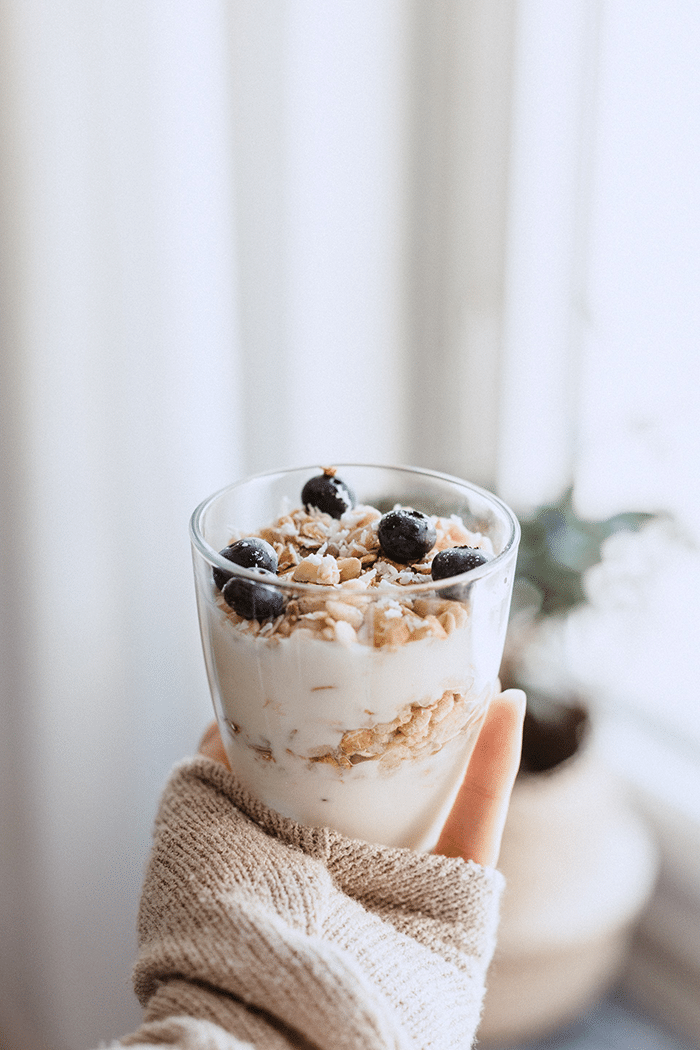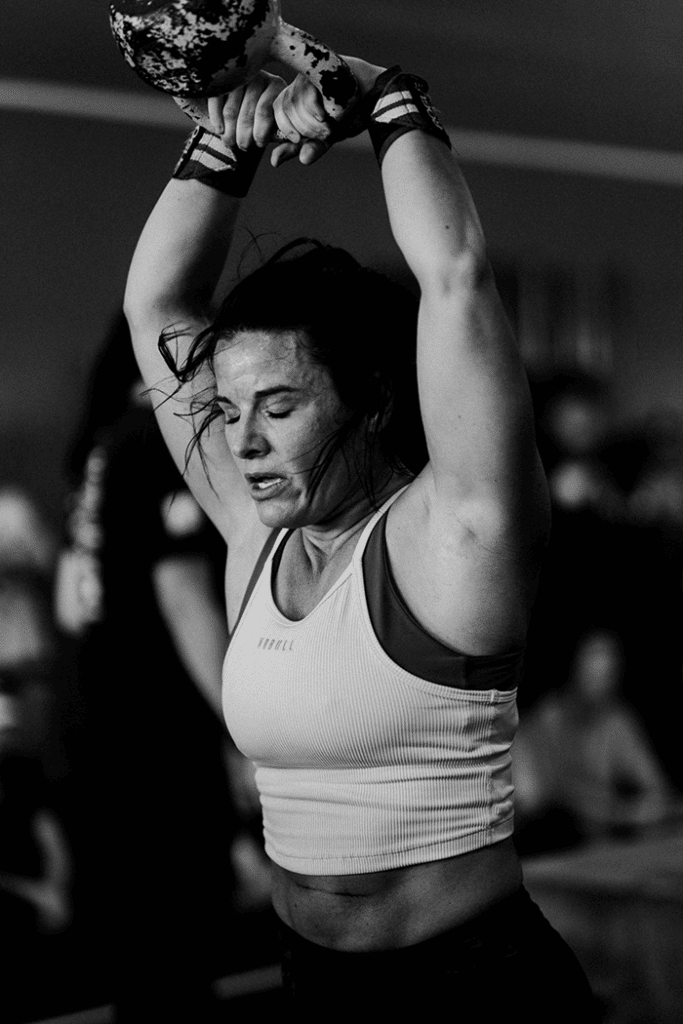Top Calorie Tracker Apps for Fat Loss and Muscle Gain
In this extensive guide we will embark on a deep dive into the best Calorie Tracker Apps so that you can make the best decision based on your goals, budget and personal preferences.
What Do Calorie Tracker Apps Do?
Calorie tracker apps help users track their food and drink intake, as well as their physical activity, in order to monitor their calorie intake and overall nutrition.
These apps often have databases of thousands of food items, allowing users to easily log what they eat and drink, as well as providing nutritional information such as calorie and macronutrient content.

Many calorie tracker apps also allow users to set goals based on weight loss or other health and fitness objectives, and will adjust their calorie targets and nutrient goals accordingly.
Additionally, many calorie tracker apps offer features such as recipe suggestions, barcode scanners to quickly log food, and personalized feedback and recommendations to help users reach their goals.
- What Do Calorie Tracker Apps Do?
- What is a Calorie?
- Top Calorie Tracker Apps
- Calorie Tracker Apps – MyFitnessPal
- How Much Does MyFitnessPal Cost?
- Calorie Tracker Apps – Lose It!
- How Much Does Lose It! Calorie Tracker App Cost?
- Calorie Tracker Apps – FatSecret
- Is FatSecret Free?
- Does the FitBit App Track Calories?
- Calorie Tracker Apps – Cronometer
- How Much Does Cronometer Cost?
- Calorie Tracker Apps – Lifesum
- How Much Does Lifesum Cost?
- What Features Does Lifesum Have?
- Calorie Tracker Apps – MyPlate
- How Much Does MyPlate Calorie Counter App Cost?
- Calorie Tracker Apps – Nutritionix Track
- What is Calorie Counter by MyNetDiary?
- YAZIO Fasting and Food Tracker App
- Calorie Tracker Apps – Autopilot Diet
- How Many Calories Should I Consume in A Day?
- How Will Tracking Calories Help Me to Lose Weight?
- What Ratio of Macronutrients Should I Eat Each Day?
- Do I Need to Count Calories?
- How Much Protein Should I Eat in A Day?
- How Much Fat Should I Eat in A Day?
- What Features are Important for a Calorie Tracking App?
- Is A Calorie Tracker App Right for Me?
- Learn More
What is a Calorie?
A calorie is a unit of energy that is commonly used to measure the amount of energy in food and the amount of energy expended through physical activity.
Specifically, a calorie is the amount of energy required to raise the temperature of one gram of water by one degree Celsius.
In the context of nutrition, calories are used to measure the amount of energy that is obtained from food and drinks.
Different foods contain different amounts of calories, with calorie content generally depending on the amount of carbohydrates, proteins, and fats in the food. Understanding calorie content is important for managing weight and maintaining a healthy diet.
Top Calorie Tracker Apps
Browse through our list of Calorie Tracker Apps and find the right one for you.
Calorie Tracker Apps – MyFitnessPal
MyFitnessPal is a calorie and nutrition tracking app that allows users to log their meals and track their exercise in order to achieve their fitness goals.
The app has a database of over 11 million foods, which makes it easy for users to log their meals and track their calorie intake.

MyFitnessPal also has a premium version with additional features like macronutrient tracking, goal setting, and more detailed nutrition analysis. The app can be used on mobile devices and on the web.
How Much Does MyFitnessPal Cost?
MyFitnessPal offers both a free and a premium version. The free version includes basic features like calorie and nutrient tracking, a food diary, and a database of over 11 million foods.
The premium version, called MyFitnessPal Premium, offers additional features like macronutrient tracking, custom nutrient goals, advanced analysis of nutrients, and an ad-free experience.
As of February 2023, the cost of MyFitnessPal Premium is $9.99 per month or $49.99 per year. However, it’s always best to check the app’s pricing page as the cost may change over time.
Calorie Tracker Apps – Lose It!
Lose It! is a popular calorie tracking app that helps users track their food intake and exercise to achieve their weight loss goals.
The app allows users to set a daily calorie budget and track their progress towards that goal by logging their meals and exercise. Lose It! also has a database of over 27 million foods, as well as a barcode scanner feature that makes it easy for users to log their meals.
The app provides insights and analysis to help users understand their eating habits, and it also integrates with a variety of fitness trackers and other apps to provide a more comprehensive view of their health and wellness. Lose It! offers a free version, as well as a premium version with additional features.
How Much Does Lose It! Calorie Tracker App Cost?
Lose It! offers both a free and a premium version. The free version includes basic features like calorie and nutrient tracking, a food diary, and a database of over a million foods.
The premium version, called Lose It! Premium, offers additional features like macronutrient tracking, custom nutrient goals, meal planning, and more detailed nutrition analysis. As of February 2023, the cost of Lose It!
Premium is $3.33 per month when billed annually or $9.99 per month when billed monthly. However, it’s always best to check the app’s pricing page as the cost may change over time.
Calorie Tracker Apps – FatSecret
FatSecret is a free calorie and nutrient tracking app that helps users track their food intake, exercise, and weight. The app has a large food database with over a million foods and includes features such as barcode scanning, meal planning, and progress tracking. In addition to tracking calories and macronutrients, FatSecret also tracks micronutrients, such as vitamins and minerals.

The app also has a social community feature that allows users to connect with friends and family to share recipes, progress, and tips. FatSecret is available on both iOS and Android devices.
Is FatSecret Free?
Yes, FatSecret is a free app that allows users to track their food intake, exercise, and weight. The app has a large database of foods, including many popular brands and restaurants, and provides nutrient and calorie information for each food item.
FatSecret also includes features like barcode scanning, meal planning, and progress tracking. While the app is free, it may show ads or offer in-app purchases to access additional features or to remove ads. However, the basic features of the app are available at no cost.
Does the FitBit App Track Calories?
Yes, the Fitbit app can track calories as part of its overall health and fitness tracking capabilities.
The app allows users to log their food intake, and it uses that information, along with the user’s activity and exercise data, to provide an estimate of the number of calories they’ve burned throughout the day.
The app also tracks macronutrients and provides users with an estimate of their daily calorie goal based on their activity level and weight loss goals.
Fitbit is primarily known for its fitness tracking devices, which sync with the app to provide a more accurate picture of the user’s activity levels and calorie burn.
Calorie Tracker Apps – Cronometer
Cronometer is a nutrition tracking app that allows users to track their food intake, exercise, and biometric data.
The app provides users with detailed information about the nutrient content of the foods they eat, including information on over 60 micronutrients, such as vitamins and minerals. In addition to tracking calories and macronutrients, Cronometer also allows users to track their progress towards meeting specific nutrient goals.
The app offers a barcode scanning feature that makes it easy for users to log their meals, and it integrates with a variety of fitness trackers and other apps to provide a more comprehensive view of their health and wellness. Cronometer is available on both iOS and Android devices, and it offers a free version, as well as a premium version with additional features.
How Much Does Cronometer Cost?
Cronometer offers both a free and a premium version. The free version includes basic features like calorie and nutrient tracking, a food diary, and a database of over 900,000 foods.
The premium version, called Cronometer Gold, offers additional features like advanced biometric tracking, custom nutrient goals, macronutrient and micronutrient targets, and more detailed nutrition analysis.
As of February 2023, the cost of Cronometer Gold is $6.99 per month when billed monthly or $59.99 per year when billed annually. However, it’s always best to check the app’s pricing page as the cost may change over time.
Calorie Tracker Apps – Lifesum
Lifesum is a calorie tracking app that helps users achieve their health and wellness goals. The app allows users to track their food and water intake, as well as their exercise and activity levels.
Lifesum offers a variety of diet plans, including keto, paleo, vegan, and more, and it provides personalized meal suggestions based on the user’s preferences and goals. The app also offers a barcode scanner feature that makes it easy to log meals, and it provides feedback and analysis to help users understand their eating habits and make healthier choices.
Lifesum is available on both iOS and Android devices and offers a free version, as well as a premium version with additional features.
How Much Does Lifesum Cost?
Lifesum offers both a free and a premium version. The free version includes basic features like calorie and nutrient tracking, a food diary, and a database of over a million foods.
The premium version, called Lifesum Premium, offers additional features like personalized diet plans, recipe suggestions, and more detailed nutrition analysis.
As of February 2023, the cost of Lifesum Premium is $7.99 per month when billed monthly or $44.99 per year when billed annually.
What Features Does Lifesum Have?
Lifesum is a calorie tracking app with several features that can help users achieve their health and wellness goals. Here are some of the key features of Lifesum:
Calorie tracking: The app allows users to log their food and water intake, as well as their exercise and activity levels, to track their calorie intake and expenditure.
Personalized diet plans: Lifesum offers a variety of diet plans, including keto, paleo, vegan, and more, and provides personalized meal suggestions based on the user’s preferences and goals.
Recipe suggestions: The app offers thousands of recipes that are tailored to the user’s dietary preferences and goals, along with step-by-step cooking instructions and ingredient lists.
Barcode scanner: Lifesum has a barcode scanner feature that makes it easy to log meals by scanning the barcode of packaged foods.
Nutrition analysis: The app provides feedback and analysis to help users understand their eating habits and make healthier choices. It provides detailed information about the nutrient content of the foods users eat, as well as feedback on the balance of their meals.
Water tracking: Lifesum allows users to track their water intake and provides reminders to help users stay hydrated throughout the day.
Goal setting: The app allows users to set goals for their calorie intake, activity levels, and weight loss, and provides feedback and recommendations to help users achieve those goals.
Lifesum also offers integration with other apps and devices, such as Fitbit and Google Fit, to provide a more comprehensive view of the user’s health and wellness.
Calorie Tracker Apps – MyPlate
MyPlate Calorie Counter is a nutrition and calorie tracking app developed by Livestrong.com. The app allows users to track their food and water intake, as well as their exercise and activity levels.
It provides personalized meal suggestions based on the user’s preferences and goals, and allows users to set and track progress towards their weight loss or fitness goals.
The app also offers a barcode scanner feature that makes it easy to log meals, and it provides feedback and analysis to help users understand their eating habits and make healthier choices.
MyPlate is available on both iOS and Android devices and offers both a free and a premium version with additional features.
How Much Does MyPlate Calorie Counter App Cost?
MyPlate Calorie Counter offers both a free and a premium version. The free version includes basic features like calorie and nutrient tracking, a food diary, and a database of over two million foods.
The premium version, called MyPlate Gold, offers additional features like personalized meal planning, recipe suggestions, and more detailed nutrition analysis.
As of February 2023, the cost of MyPlate Gold is $9.99 per month when billed monthly or $49.99 per year when billed annually.
Calorie Tracker Apps – Nutritionix Track
Nutritionix Track is a calorie tracking app that allows users to log their food and water intake, as well as their exercise and activity levels.
The app has a database of over 800,000 foods, including both brand-name and generic items, and offers a barcode scanner feature that makes it easy to log meals.

Nutritionix Track provides detailed information about the nutrient content of the foods users eat, as well as feedback and analysis to help users understand their eating habits and make healthier choices.
The app is available on both iOS and Android devices and offers both a free and a premium version with additional features.
What is Calorie Counter by MyNetDiary?
Calorie Counter by MyNetDiary is a nutrition and calorie tracking app that helps users to achieve their health and wellness goals. The app allows users to track their food and water intake, as well as their exercise and activity levels, and provides personalized feedback and recommendations based on their preferences and goals.
Calorie Counter by MyNetDiary has a database of over 700,000 foods, and offers a barcode scanner feature that makes it easy to log meals.
The app provides detailed information about the nutrient content of the foods users eat, as well as feedback and analysis to help users understand their eating habits and make healthier choices.
The app is available on both iOS and Android devices and offers both a free and a premium version with additional features.
YAZIO Fasting and Food Tracker App
YAZIO is a health and fitness app that offers a fasting and food tracking feature.
The app allows users to track their food and water intake, as well as their exercise and activity levels, and provides personalized feedback and recommendations based on their goals. The app has a database of over 20 million foods and offers a barcode scanner feature that makes it easy to log meals.
YAZIO also offers a fasting timer that allows users to track their intermittent fasting schedule and provides personalized recommendations for meal planning. The app is available on both iOS and Android devices and offers both a free and a premium version with additional features.
Calorie Tracker Apps – Autopilot Diet
Autopilot Diet is a calorie tracking app that offers personalized meal planning and tracking. The app allows users to set their weight loss or fitness goals and provides daily meal plans based on their preferences and dietary needs.
Autopilot Diet also provides a food diary and barcode scanner feature to help users log their meals, as well as exercise and water tracking.
The app has a database of over 100,000 foods and offers a nutrient tracker that provides detailed information about the macro and micronutrient content of the foods users eat. The app is available on both iOS and Android devices and offers both a free and a premium version with additional features.
How Many Calories Should I Consume in A Day?
The number of calories a person should consume in a day depends on several factors, including age, gender, height, weight, and level of physical activity.
In general, the average adult woman needs to consume around 2,000 calories per day, while the average adult man needs to consume around 2,500 calories per day, to maintain their current weight.
However, individual calorie needs can vary widely based on activity levels, metabolism, and other factors.
To determine your personal calorie needs, it is recommended to consult with a healthcare professional or registered dietitian who can provide personalized recommendations based on your individual needs and goals.
How Will Tracking Calories Help Me to Lose Weight?
Tracking calories can be a useful tool for weight loss because it allows you to monitor your food intake and ensure that you are consuming an appropriate number of calories for your weight loss goals.

When trying to lose weight, it is generally recommended to create a calorie deficit, which means consuming fewer calories than your body burns each day. By tracking the calories in the foods you eat, you can better understand how much you are consuming and make adjustments to your diet as needed.
Calorie tracker apps can help you set goals for daily calorie intake and track the number of calories you consume throughout the day. Many of these apps also provide nutritional information about the foods you eat, such as the amount of protein, carbohydrates, and fats, which can help you make informed choices about your diet.
However, it is important to remember that weight loss is not just about calorie counting. Other factors, such as exercise, sleep, and stress, can also play a role in weight loss. Additionally, it is important to maintain a healthy and balanced diet to ensure that you are getting all the nutrients your body needs to function properly.
What Ratio of Macronutrients Should I Eat Each Day?
The appropriate ratio of macronutrients (carbohydrates, proteins, and fats) for an individual can depend on a variety of factors, such as age, gender, activity level, and overall health goals. However, in general, the following macronutrient ratios can provide a good starting point:
- Carbohydrates: 45-65% of daily calorie intake
- Proteins: 10-35% of daily calorie intake
- Fats: 20-35% of daily calorie intake
It is important to note that these are only general guidelines and individual needs can vary. For example, athletes or people engaging in intense physical activity may require higher amounts of protein to support muscle growth and recovery.
Additionally, people with certain health conditions may need to limit certain macronutrients or adjust their ratios.

It is recommended to consult with a healthcare professional or registered dietitian to determine the appropriate macronutrient ratios for your individual needs and goals.
Do I Need to Count Calories?
Counting calories is not necessarily required for everyone, but it can be a useful tool for some people who are trying to achieve specific health or fitness goals, such as weight loss, weight gain, or muscle building.
If you are trying to lose weight, counting calories can help you create a calorie deficit, which is necessary for weight loss. By tracking your food intake and the number of calories you consume, you can ensure that you are not consuming more calories than your body burns each day.
However, it is important to note that counting calories is not the only way to achieve weight loss or other health goals. It is also important to make healthy and balanced food choices, get regular physical activity, and prioritize adequate sleep and stress management.
If you are considering counting calories, it is recommended to consult with a healthcare professional or registered dietitian to determine the appropriate calorie goals and to ensure that you are meeting your nutrient needs. Additionally, calorie counting should be used as a tool for creating healthy habits and should not be used as an obsessive or restrictive approach to eating.
How Much Protein Should I Eat in A Day?
The amount of protein an individual needs per day can vary depending on various factors, such as age, sex, body weight, physical activity level, and overall health goals. However, in general, the recommended daily intake for protein is:
- 0.8 grams per kilogram of body weight for the general population
- 1.2-2.0 grams per kilogram of body weight for athletes or people engaging in intense physical activity
For example, if you weigh 68 kilograms (150 pounds), the general recommendation would be to consume around 54 grams of protein per day (68 x 0.8). If you are an athlete or highly active, you may need to consume 82-136 grams of protein per day (68 x 1.2-2.0).
It is important to note that consuming too much protein can be harmful to health, particularly for people with certain health conditions such as kidney disease.
It is recommended to consult with a healthcare professional or registered dietitian to determine the appropriate amount of protein for your individual needs and goals.
How Much Fat Should I Eat in A Day?
The amount of fat an individual needs per day can vary depending on various factors, such as age, sex, body weight, physical activity level, and overall health goals. However, in general, the recommended daily intake for fat is:

- 20-35% of total daily calories for adults
For example, if you consume 2000 calories per day, your recommended fat intake would be around 44-77 grams per day (2000 x 0.20-0.35).
It is important to note that not all fats are created equal, and it is important to focus on consuming healthy sources of fat such as those found in nuts, seeds, avocados, fish, and olive oil.
It is also important to limit saturated and trans fats, which can increase the risk of heart disease. Additionally, it is recommended to consult with a healthcare professional or registered dietitian to determine the appropriate amount of fat for your individual needs and goals.
What Features are Important for a Calorie Tracking App?
The features that are important in a calorie tracking app may vary depending on individual needs and preferences. However, some key features to consider include:
Food Database
A comprehensive food database is essential for accurately tracking calorie intake. The database should include a wide range of foods and beverages, including brand name products and restaurant items.
Barcode Scanner
A barcode scanner can make tracking calorie intake more convenient by allowing you to scan the barcode of packaged foods to quickly and easily enter the nutritional information.
Customization
The ability to customize serving sizes and add custom foods is important for accuracy.
Nutrient Tracking
Tracking other nutrients besides calories such as protein, fat, and carbohydrates, and micronutrients such as vitamins and minerals, can help ensure a balanced diet.
Syncing
The ability to sync with other health and fitness apps, such as fitness trackers or other health apps, can provide a more complete picture of overall health and wellness.
Goal Setting
Setting personalized goals can help keep you motivated and on track with your health and fitness goals.
Community Support
Community support can provide motivation and accountability, through features such as social media integration or a community forum.
User-Friendliness
An app that is user-friendly and easy to navigate can make the tracking process more enjoyable and sustainable over the long term.
Ultimately, the most important feature of a calorie tracking app is its ability to help you achieve your health and fitness goals. It is important to choose an app that works best for your individual needs and preferences.
Is A Calorie Tracker App Right for Me?
A calorie tracker app can be a helpful tool for individuals looking to lose weight or maintain a healthy weight. By providing an easy and convenient way to track food intake and monitor calorie and nutrient intake, a calorie tracker app can help individuals develop a better understanding of their eating habits and make more informed decisions about food choices.
However, whether a calorie tracker app is right for you depends on your individual needs, goals, and preferences.
If you are someone who enjoys tracking, analyzing, and reviewing data, a calorie tracker app may be a good fit for you. Additionally, if you have specific dietary needs, such as managing a health condition or following a specific diet plan, a calorie tracker app may be especially useful.
It is important to note, however, that a calorie tracker app should not be a replacement for professional medical or nutritional advice. It is always recommended to consult with a healthcare professional or registered dietitian to determine the appropriate dietary recommendations for your individual needs and goals.
Ultimately, the decision to use a calorie tracker app is a personal one, and individuals should carefully consider their individual needs and preferences before deciding whether to use one.



